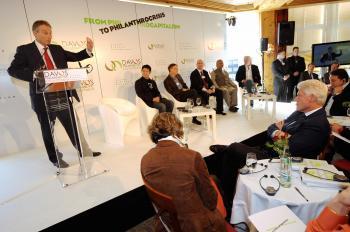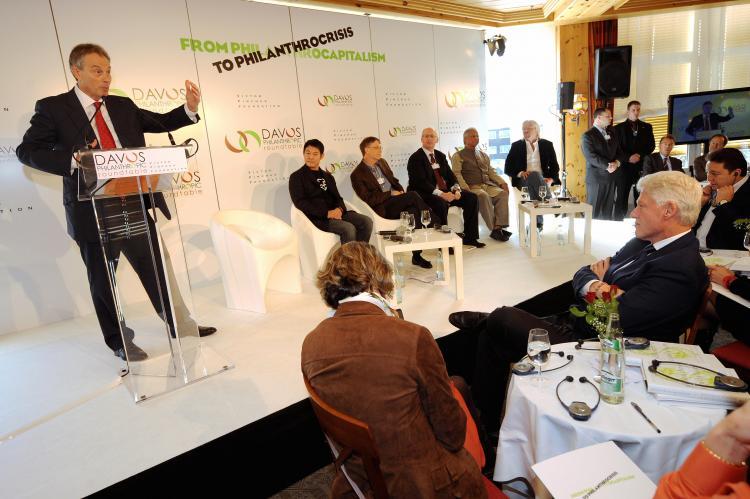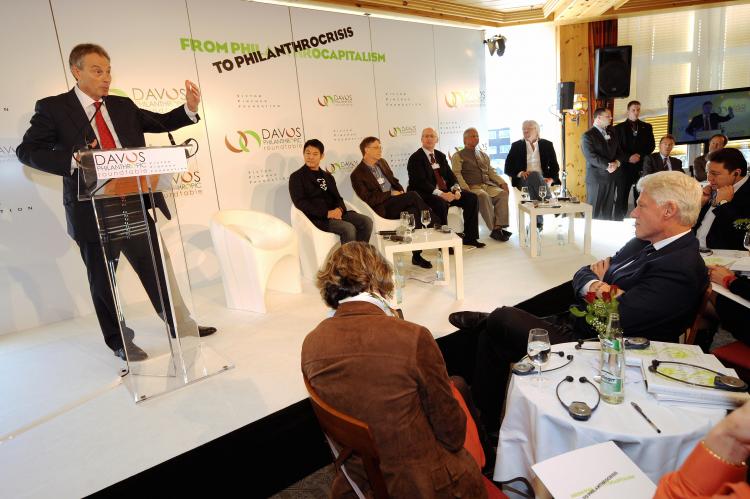Last week at the World Economic Forum (WEF) in Davos, Switzerland, bankers and politicians from many countries around the world met to discuss the possibility of new regulations imposed on banking activities in order to prevent another global economic crisis.
French President Nicolas Sarkozy strongly criticized the banking industry for taking on excessively risky trades, which set the tone for several meetings in Davos.
“To earn such enormous sums and not to bear responsibility is immoral,” he said, putting blame on those banking institutions that used deposits to make risky investments that tipped the world’s economy into disaster last year.
President Barack Obama stunned the banking world two weeks ago after proposing his so-called “Volcker rule” designed to limit banks’ size and activities, forcing them to make a clear separation between either proprietary trading such as using their own money to make risky investments and traditional trading such as making loans and collecting deposits.
Alistair Darling, the British chancellor, disagreed with Obama’s proposal—arguing that it would not solve the problem that had initially led to the crisis.
“It doesn’t help to separate the two businesses [proprietary and traditional] into Bank A and Bank B if it turns out that the companies are laying off the risks to each other. It is very difficult to say when proprietary trading crosses the line into casino banking,” Darling said at the WEF, according to a transcript posted on its Web site.
“British Airways trades fuel derivatives as part of its fuel-hedging strategy and it might make a turn on the trading along the way—when does that cross the line?” he questioned.
Another proposal at WEF was to introduce a new bank tax, a global levy that would collect money from all banks worldwide to form a global resolution fund that could be used to help banks that are in financial difficulties, rather than using taxpayers’ money to bail them out.
“To help solve the ‘too-big-to-fail’ problem I’m advocating a European rescue and resolution fund for banks. Of course, the capital for this fund would have to come from banks to a large degree,” said Josef Ackerman, the CEO of Deutsche Bank, in an interview with the Financial Times last week.
Bob Diamond, CEO of British bank Barclays Plc, is in strong support of the idea of a global levy that sees banks contributing tens or hundreds of billions of dollars in the years to come.
“I think every G20 country would like to have an insurance scheme that would help cover the cost of any future bank failure. A coordinated global system is preferable to an unlevel playing field,” Diamond said in an interview with the Financial Times.
But in response to sharp criticism from the politicians, many bankers are unwilling to listen or to take a step back in their actions.
“They [bankers] want to go back to business as usual, but they have misjudged the strength of feeling among the general public about this,” said Guillermo Ortiz, governor of the Bank of Mexico and a member of the Group of Thirty, in a statement. G30 is an organization that is determined to make banking operations safe.
Peter Sands, the CEO of Standard Chartered Bank Group, has voiced his concerns that these proposed regulations are not taking into consideration any of the Asian banks that have been less impacted by the crisis.
“What we don’t want is a situation where we shape the future regulatory reform too dominated by Western voices with the effect of Asia having to take medicine for an illness that it didn’t have,” he said referring to the fact that many of Asian banks have suffered little from the crisis.
After a week of discussions at the WEF, the bankers got the message that a lot of people are very upset and there are going to be some tough measures taken.
“There’s going to be regulations, they [the bankers] understand that,” said Rep. Barney Frank (D-Mass.), head of the House Financial Services Committee, in a statement. “We are willing to talk to people about the specific of how to achieve the goals, but … there is general agreement that there has to be international coordination.”
“They aren’t in charge of this. The political leadership certainly in the U.S. is going to go ahead with tough, sensible regulation,” he added.
In Davos, Leaders Take Aim at the Banking Industry
Bankers and politicians met at the World Economic Forum in Davos, Switzerland to discuss new regulations on banking activities.

Former British Prime Minister Tony Blair speaks as former US President Bill Clinton (R) listens in Davos on January 29, 2009 during the Davos Philanthropic Roundtable. Other participants present are Chinese movie star Jet Li, Bill Gates, Bangladeshi banker and 2006 Nobel peace prize laureate Muhammad Yunus and Richard Branson. More than 2500 heads of states and government, ministers, captains of industry and leaders of churches and pressure groups were also present at the World Economic Forum. Fabrice Coffrini/AFP/Getty Images
|Updated:





